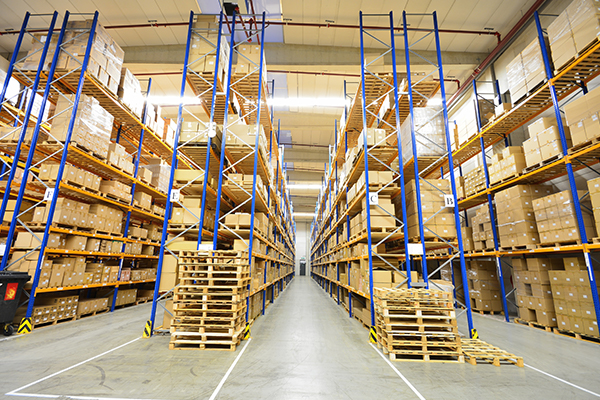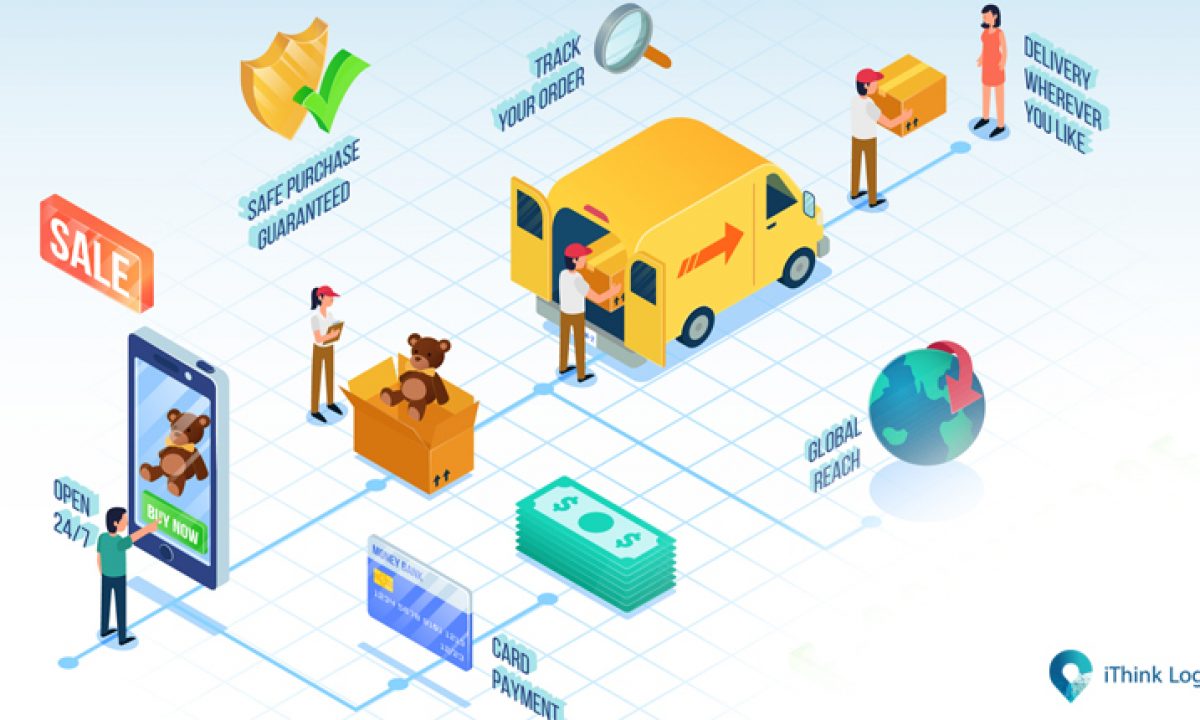In the ever-evolving landscape of eCommerce, understanding the nuances between B2B (business-to-business) and B2C (business-to-consumer) order fulfillment is pivotal. Read more about using third-party fulfillment here. In this guide, we’ll delve deep into the distinction between these two types of order fulfillment service, offering insights into the demands of each and providing a clearer perspective for businesses making informed decisions.
What is B2C Order Fulfillment?
B2C order fulfillment, which stands for “Business-to-Consumer,” specializes in serving businesses that cater directly to individual consumers, rather than selling in bulk to other businesses. This model has gained significant traction with the digital revolution and the subsequent boom in online shopping. Unlike the B2B (Business-to-Business) counterpart that often handles larger, bulk orders, B2C customer order fulfillment handles smaller, more personalized orders, but usually at much higher frequencies.
The nuances of B2C fulfillment service are shaped by consumer expectations. In today’s fast-paced ecommerce environment, consumers anticipate quick, accurate, and reliable delivery of their purchases. This means that order fulfillment via B2C not only focuses on the logistical aspects of storing, picking, packing, and shipping products but also places a strong emphasis on speed, efficiency, and the overall customer experience. The end goal is always to ensure that the individual consumer receives their order in pristine condition and within the expected delivery window, leading to enhanced customer satisfaction and fostering brand loyalty.
How Does B2B Order Fulfillment Differ?
B2B and B2C order fulfillment services have a significant difference. B2B stands for “Business-to-Business” and represents a distinct process tailored for companies that transact with other businesses rather than individual consumers. This model is fundamentally different from B2C (Business-to-Consumer) fulfillment in several key aspects. The first key difference between B2B and B2C is that B2B transactions often involve larger quantities. Instead of shipping a single item to a consumer, a B2B order might consist of pallets of goods, bulk shipments of raw materials, or large-scale equipment.
Given the magnitude of these orders, the administration behind B2B shipment fulfillment can be considerably more intricate. Warehousing needs, for instance, might involve specialized storage solutions or advanced inventory management systems to handle the volume and variety of products. Additionally, the packing process may require specialized machinery or equipment to handle bulk items.
Another distinguishing factor is the nature of relationships and contracts in B2B transactions. Unlike the typically straightforward purchase process in B2C, B2B orders often come with negotiated contracts, volume discounts, and specific delivery stipulations. These agreements can dictate payment terms, delivery schedules, and even return policies, adding layers of complexity to the ecommerce fulfillment process.
Furthermore, the delivery timeframes in B2B are generally more extended than in B2C. While consumers expect rapid delivery, businesses often have pre-planned schedules, taking into account production cycles, inventory management, and other operational considerations. This doesn’t mean speed isn’t essential in a B2B contract; it’s just balanced with other factors like precision, contractual adherence, and bulk handling efficiency.
Logistics: The Backbone of Fulfillment
Logistics, the backbone of global commerce, plays a crucial role in both B2B and B2C order fulfillment. It’s all about the meticulous management of moving goods from one location to another, ensuring products arrive at their destination efficiently. This process is riddled with complexities, from warehousing and inventory management to transportation and last-mile delivery.
In the global B2B landscape, the challenges often stem from the vast scale and volume of shipments, which starkly contrasts the average order value seen in B2C orders. B2B orders typically involve large quantities, possibly palletized goods or entire containers, demanding specialized storage solutions and sophisticated inventory tracking systems. The difference between B2C and B2B doesn’t stop at volume; B2B often deals with contractual requirements, specifying delivery windows, handling instructions, or custom packaging. On the other hand, B2C order fulfillment, in terms of order data, tends to be more straightforward but comes with its own set of unique challenges and complexities.
In contrast, B2C logistics, facilitated by order fulfillment centers, is largely influenced by consumer expectations for swift and precise deliveries. The surge in online shopping and the allure of fast shipping have conditioned consumers to anticipate near-immediate satisfaction. This demand has spurred the development of advanced last-mile delivery solutions, real-time tracking systems, and even same-day delivery options. The challenge for an order fulfillment company is to process, pack, and dispatch individual orders, which can vary in size and destination, promptly without sacrificing accuracy or quality.
Whereas a B2B transaction often involves bulk shipments and specific contractual agreements, B2C logistics focuses on individual consumer needs. However, the intersection between B2C and B2B may be found in their shared objective: the unwavering commitment to efficiency.
Why Does Customer Experience Matter in B2C Fulfillment?
In both the B2C and B2B landscapes, the end customer’s experience is paramount. Understanding the nuances between B2B and B2C, it’s evident that whereas B2C fulfillment of orders might involve individual items for personal consumers, B2B fulfillment services play a role in bulk shipments for businesses. However, when it comes to B2C, the B2C fulfillment process is a standout factor in determining customer satisfaction, often dictating whether a consumer becomes a one-time buyer or a loyal patron.
The cornerstone of outstanding B2C order fulfillment work is timely delivery. In our era of immediate satisfaction, with services offering same-day or even two-hour deliveries, any lag can be detrimental. Customers anticipate their purchases to not only arrive swiftly but also within the specified time slot. Even a slight deviation from the promised delivery window can trigger dissatisfaction. Brands that consistently meet or exceed delivery expectations establish themselves as trustworthy in the consumer’s eyes, laying the foundation for ongoing business.
However, speed is not the only factor. The accuracy of the order is equally vital. Receiving the wrong product, wrong order size, or color can be a significant pain point for customers, leading to disappointment and necessitating returns or exchanges. An efficient inventory management system, coupled with meticulous order processing, can minimize such errors, ensuring that customers receive exactly what they ordered.
Speaking of returns, an easy and transparent return policy is another cornerstone of a stellar B2C experience. Returns are an inevitable part of online shopping, and how a brand handles them can significantly impact its reputation. A hassle-free return process, with clear guidelines and prompt refunds or exchanges, can turn a potentially negative experience into a positive one. It demonstrates that the brand values its customers and is willing to go the extra mile to ensure their satisfaction.
Fulfillment Centers: How Do They Play a Role?
Fulfillment centers are specialized warehouses tasked with storing, packing, and dispatching products for businesses. Whether catering to the much more complex B2C needs of B2B or the direct consumer demands of B2C, these centers are instrumental in guaranteeing efficient order handling. Fulfillment services play an essential role in the business ecosystem, and partnering with a reputable center can optimize operations, expedite deliveries, and curtail shipping expenses. Businesses expect fulfillment centers to meet high standards consistently, and it’s crucial to tailor the fulfillment processes to the unique requirements of each order type.
The Rise of 3PL in B2B and B2C Fulfillment
Third-party logistics (3PL) providers offer businesses an outsourced solution to handle parts or all of their management needs. They provide a bridge between the seller and the buyer, ensuring products are stored, packed, and delivered efficiently. The use of 3PL can be beneficial for both B2B and B2C businesses. They bring expertise, scalability, and technology to the table.
B2B versus B2C Order Fulfillment: Which Order Volume is Higher?
B2C order fulfillment handles smaller, individual orders, while the complexities of B2B orders often involve larger, bulk shipments. The distinction between B2B and B2C isn’t merely about their target audience. It delves deep into the management and fulfillment processes backing them. Since B2B transactions involve more substantial quantities and potentially more consistent ordering patterns, the approach to order fulfillment is focused differently than B2C. Fulfillment services allow businesses to cater to these specific needs effectively. Understanding and adjusting to these intricacies is crucial for any enterprise striving to streamline its operations and deliver outstanding service.
The Crucial Role of Fulfillment Service Providers
Fulfillment service providers are integral to the shipping and logistics operations in both B2B and B2C transaction environments. These providers offer specialized services, ranging from inventory management to global shipping, allowing businesses to concentrate on their core functions. B2B transactions involve larger quantities and often more complex requirements than B2C, catering specifically to B2B customers’ needs. Fulfillment centers also ensure timely order delivery and efficiently process and dispatch both B2B and B2C orders.
How Does the Order Fulfillment Process Work?
Several steps are involved from receiving an order to delivering it to the end customer. These include processing the order, picking and packing the product, shipping, and, finally, delivery. Understanding the intricacies of this process is vital for any business. It involves ensuring that products reach their intended destination promptly and accurately.
Choosing the Right Fulfillment Partner: Key Considerations
Choosing the right fulfillment partner is a critical decision. It can significantly impact the success and growth trajectory of any business, be it B2B or B2C. The ideal partner should not only have deep expertise in logistics and fulfillment but should also equip themselves with cutting-edge technological solutions. These should integrate seamlessly with your business operations. Scalability is another essential factor. As your business grows, your fulfillment partner should be able to adapt. They should also be able to handle increased order volumes without compromising on efficiency or accuracy. Furthermore, delving into customer reviews and feedback can provide invaluable insights into the partner’s reliability, problem-solving abilities, and overall performance. Ultimately, forging a robust partnership with the right fulfillment provider can streamline your operations and optimize costs. It can significantly enhance the satisfaction levels of your end customers, solidifying your position in the competitive market landscape.
Conclusion
Navigating the intricate world of order fulfillment demands a deep understanding of the unique challenges and opportunities each presents. As the eCommerce landscape continues to evolve, businesses must prioritize efficiency, customer satisfaction, and adaptability. By recognizing the nuances of B2B and B2C fulfillment, leveraging the expertise of B2C and B2B fulfillment centers and third-party logistics providers, and continuously refining their strategies, companies can ensure they remain competitive. They can meet customer expectations, and drive sustainable growth in an increasingly digital marketplace.
Check out PhaseV’s wide range of services that cater to all your business needs.




